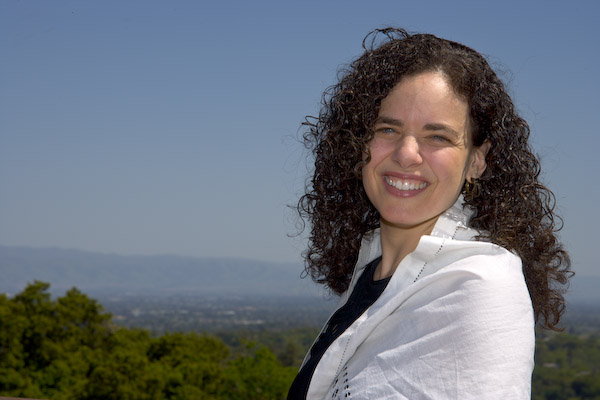
Former Long Beach resident Mychal Copeland, the new rabbi at San Francisco’s renowned LGBTQ synagogue Sha’ar Zahav, believes that religious institutions and leaders with progressive values must be heard and seen. Photo: Mychal Copeland.
Former Long Beach resident Mychal Copeland, the new rabbi at San Francisco’s renowned LGBTQ synagogue Sha’ar Zahav, believes that religious institutions and leaders with progressive values must be heard and seen.
“Much of that conversation needs to happen around religion,” Copeland, 46, said in an interview with the Bay Area Reporter. “This is a big part of why I’m so excited about this role. To be in a place with progressive values that is unabashedly a religious institution. It’s profound right now.”
Copeland also is an author. Her latest book is “Struggling in Good Faith: LGBTQI Inclusion from 13 American Religious Perspectives.”
FROM LONG BEACH TO HARVARD
Copeland, who grew up in Long Beach and attended Temple Israel, moved to the East Coast to attend Harvard Divinity School and rabbinical school in Philadelphia and New York.
She met her wife, Kirsti, 45, at Harvard Divinity School in 1993, and they married seven years later.
Kirsti is the associate dean of student affairs in the school of engineering at Stanford University, according to her biography on the university’s website.
40 YEARS AS LGBTQ SYNAGOGUE
Congregation Sha’ar Zaha was founded in 1977.
In an interview with The Jewish News of Northern California, Michael Chertok, Sha’ar Zahav’s president and a member since 1993, explains the importance of existing four decades
“This year we’re marking 40 years, and that’s a significant number in Judaism,” Chertok said. “It’s hard to say we’ve come into the Promised Land, but we’re really in a new place as far as LGBT rights in this country.”
Copeland, who started as rabbi July 1, leads Shabbat services with a rainbow tallit around her shoulders.
‘STAY VIGILANT’
Copeland tells the Bay Area Reporter that with the regular anti-LGBTQ attacks from the White House, it’s important to stay vigilant.
“Religions tend to get pitted against LGBTQI issues in overly simplistic ways on our national stage,” Copeland said. “We are seeing only one brand of religion because there is only one brand of religion that gets the attention.”

